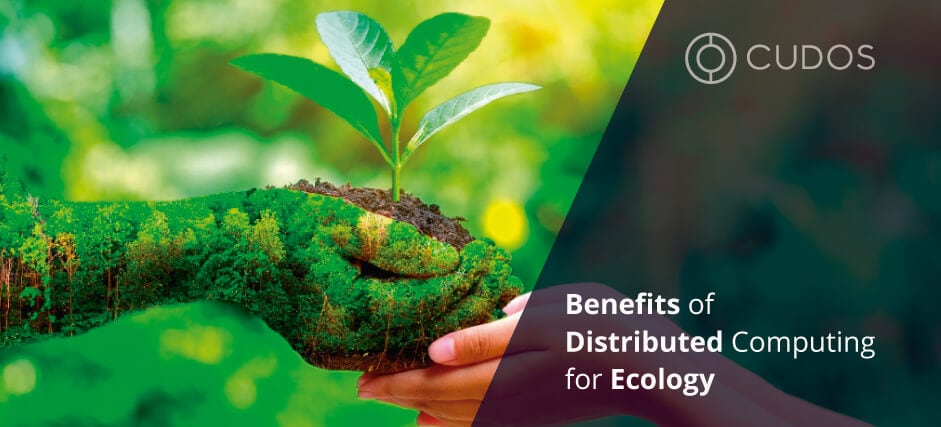Ecology is an issue that involves us all, that is why throughout this article we will see the benefits that the distributed computing capacity of CUDOS brings, and how it contributes to the environment, to considerably reduce the levels of pollution produced by the systems used today, which cause a greater impact in terms of energy consumption and polluting emissions.
Ecological commitment
Technological advances bring with them a greater environmental impact, mainly due to the emission of gases when manufacturing the products and the energy consumption they carry out. Undoubtedly, solutions must be sought that do not impede progress, but that on the other hand, contribute to finding alternatives that reduce environmental impact. It is here where the challenge for the development of future technologies is presented, where greater ecological parameters are contemplated that provide solutions in this regard.
If we take the automotive industry as an example, we see how, with its evolution, the means have been articulated so that vehicles produce less pollution. As a latest advance in this regard, we see a trend in this industry towards the construction of electric vehicles, where the emission of gases is reduced to zero, which is very promising to reduce the ecological impact in this regard in the coming years.
The computer industry is not immune to these changes, and that is why, in recent times, the challenge of articulating efforts for the design of new products has been raised with the aim of reducing pollutant levels. Today everyone has at least one mobile device in their pocket, therefore, solutions must be devised, such as distributed computing, to take advantage of resources that are underutilized.
Benefits of distributed computing to reduce environmental impact
If we analyze the present, we can quickly realize that people who own electronic devices use them for different purposes, but these devices have been built with the same technical capacity to carry out one or another purpose. For example, people who use devices to browse social networks are not the same, in many cases, as video game users. However, the available computing capacity is the same, which is why a large amount of resources is underutilized.
Through distributed computing capacity, a solution is presented so that devices can be used at their maximum level of efficiency, that is, people who do not need to use a certain amount of resources could share them so that that surplus is used by whoever requires it. In this way, a collaborative ecosystem can be established where a contribution is made that will save money and have a lesser impact on the environment.
The greatest ecological impact occurs in the manufacture of electronic devices, that is why, if we can find solutions regarding their use, we could obtain good results. If it is possible to establish a collaborative ecosystem in terms of distributed computing capacity, hardware manufacturing would be reduced, since such a high level of production would no longer be necessary, giving correct use to technical requirements according to whatever the purpose.
Model proposed by the CUDOS network
CUDOS presents us with a blockchain model of distributed computing capacity in the cloud that provides great benefits when it comes to establishing a good use of technology. In this way, both companies and individuals that require greater capacity can join the network to require the necessary work quota according to the purpose to be obtained.
This structure has many advantages and characteristics that could benefit a large number of people, while reducing the levels of environmental pollution. This approach represents an economic benefit, since its distribution model in the cloud drastically reduces costs for companies that require obtaining a certain computational capacity, such as the medical industry or scientific research in general.
The formation of this collaborative ecosystem gives the possibility of obtaining rewards to those people who share their underused resources through the CUDOS network, which can be done through devices such as video game consoles, computers, mobile devices, among others. On the other hand, companies that require it can hire what they need at very reduced prices compared to what they have to invest at present, thus contributing to sustainable progress in terms of environmental parameters.
Conclusion
We are facing a new world scenario, in which everyone’s commitment is required to try to improve the current polluting parameters. Solutions such as those provided by the CUDOS network allow us to consider models that contribute to progress, but making a correct efficient use of technology, without wasting resources, which lead to higher levels of ecological impact.

